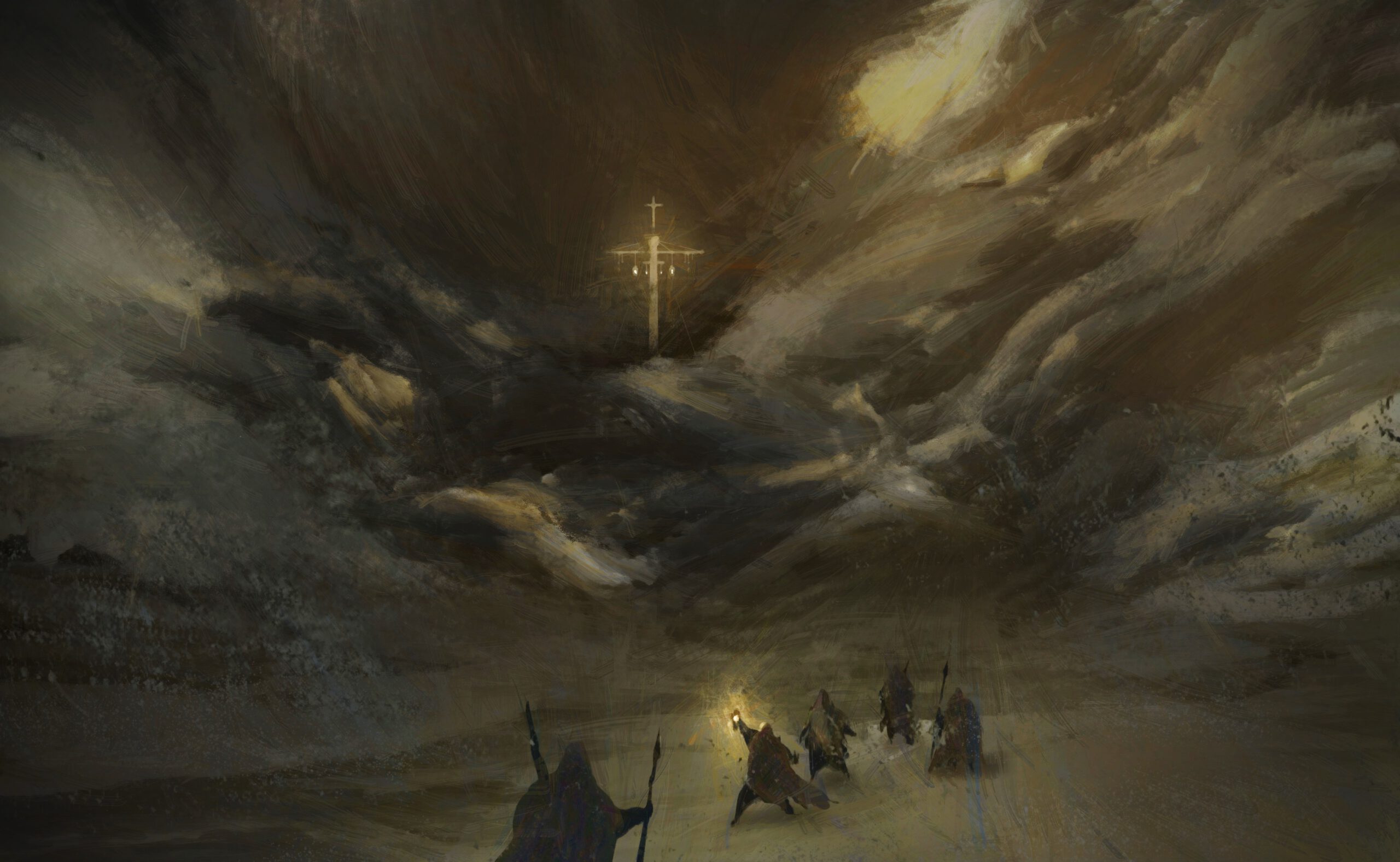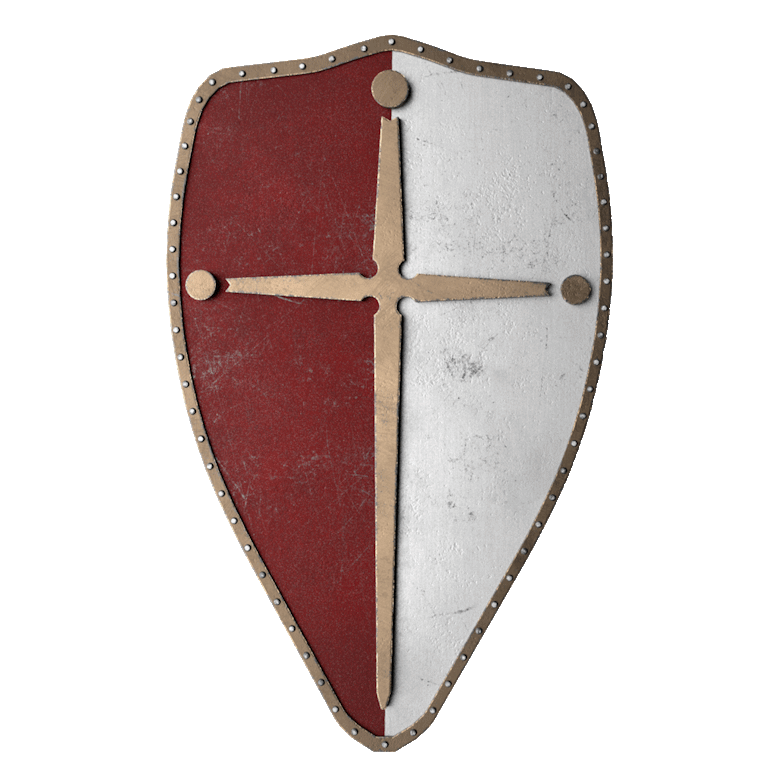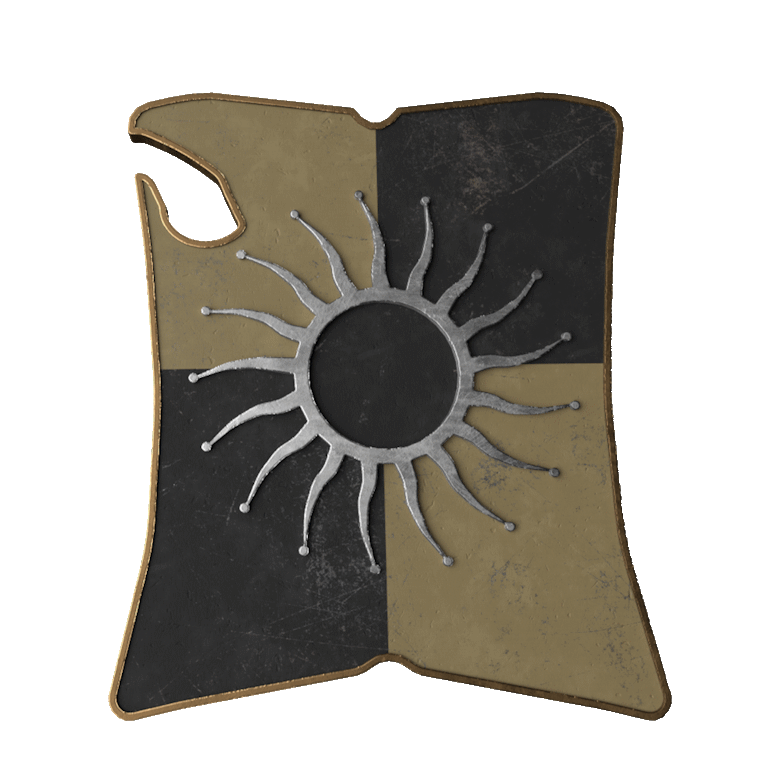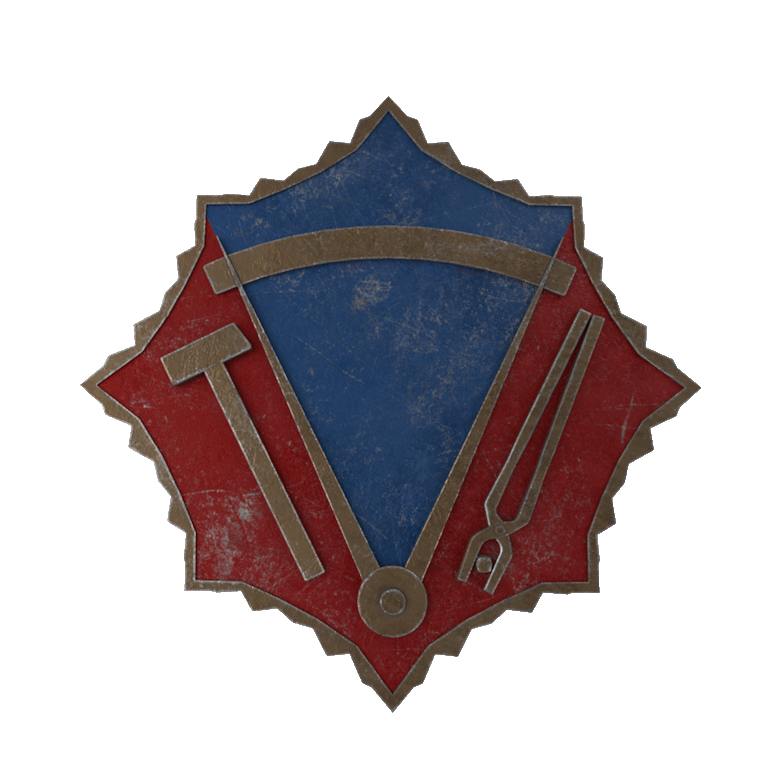Menu
Menu


Dominating the western Mediterranean and expanding unstoppably, the Sacrum Imperium is the strongest power on the European continent. United by the strict hand of the Novissima Ecclesia, the Last Church, the Sacrum Imperium claims universal dominion over all of humanity. The heart of the Empire beats in the Basilica Canonicum at the Monasterium Aventinus on the outskirts of the Blinded City of Rome. There, the Vicarius reigns as absolute ruler over many millions of believers. They all worship the three angels Gracia, Mare and Castell, whom God sent out of pure goodness to give the remaining sinners one last chance during the Last Judgement.
“Rejoice in the mercy of your Lord, for he offers you a way out of your darkness. Soon the infernal armies will fall upon these lands, so gather the repentant for the Last Battle on the side of God!”
With its powerful industrial centres and access to raw materials, the Sacrum Imperium has enormous capacities at its disposal. Its war machine favours gigantism to demonstrate the power of the Church. But behind heavy tanks, sophisticated weapons and powerful galeazzas, the Empire relies on its mass of well-motivated soldiers and simple war machines.
The seemingly endless crusades are increasingly exhausting the Empire, but the Vicarius knows that time is running out. How many people can be saved?

Once a mighty empire is now just a loose confederation of feudal kingdoms in the heart of Central Europe. The unity of the Lohen has crumbled since the extinction of the ruling dynasty. There are seventeen kingdoms stretching from the North and Baltic Seas to the Alps in the south and from the Rhine to the Silean Ash Desert. It is an empire of contrasts in many aspects, and as a last bond of cohesion, the Lohen gather every six months at the Lohentage. There they discuss war and peace, laws and support. But the council is paralysed by greed for power and betrayal.
And so every king, every duke, every lord currently stands alone.
It is like the early days during the Ashen Years. The cities in the north in ruins due to storm surges and fire, the people in the south wandering through bitterly cold landscapes of snow and scorched forests. Those away from the coasts soon found refuge on the peripheries of the glowing deserts. It was warm there, thanks to Cinium. And just as then, when all solidarity was over, it is now the power of Cinium that stands by all the Lohen. They recognised its value early on and as divided as the Lohen are among themselves, their machines of fire and steel are unbreakable.
War is a frequent guest and the Lohen are no strangers to it. The estates society is also reflected in their warfare. In the army, nobles march into battle with heavy tanks, followed by professional men-at-arms who are ready in both war and peace. Freemen and mercenaries fill out the ranks. And may the demons of the ember deserts prevent the princes, dukes and even kings themselves from marching into battle in their iron castles.
Wars and ash storms, crusaders and communards haunt the Lohenlands. Without someone to unite the Lohen under one banner once more, the realms will fall, each on its own.

Born in the Red Night, the Communes is a young and hated nation. It is not a state, they say, but a continuing rebellion. The kingdoms of western Europe have fallen under the force of the people’s anger and the Communes are rising in their place. Influenced by the old ideologues such as Gerrard Winstanley and the younger intellectuals of the industrialised world such as Espèr and Sance. All these ideologies are currently united under the council-democratic directorate.
The Communes despised the old regime. The Intelligence, as they call themselves, those who direct and lead, are planning to burn down the existing world in favour of a new community. “All equal!” is the battle cry. But there is disagreement as to how “All Equal” is to be realised. The revolution has only just begun and, according to Sance, it will be a “march to eternity”, because what God denies them, people will simply take for themselves.
Where uprisings fail, the Communes will carry out liberation by force. “Levée en masse” is the motto. Most of the officers and veterans of the royal armies died in the purges of the first years of the revolution. Only the defectors from the Royal Artillery Regiment of Toulouse, who willingly shared their knowledge with the revolutionaries, were spared. In addition to masses, popular anger and artillery, the Communes relied above all on their speed. As long as the fire of revolution always burns where the enemy does not expect it, they will always have the advantage.
However, the Directorate has long been concerned about how long the momentum will last. Poverty has not disappeared, but is on the increase. The war is draining the people. The countless parties are at odds over the vision for the future and new tyrants have long since been reaching for power in the shadows.
To provide you with an optimised experience, we use technologies such as cookies to store and/or access device information. If you consent to these technologies, we may process data such as browsing behaviour or unique IDs on this website. If you do not give or withdraw your consent, certain features and functions may be impaired.